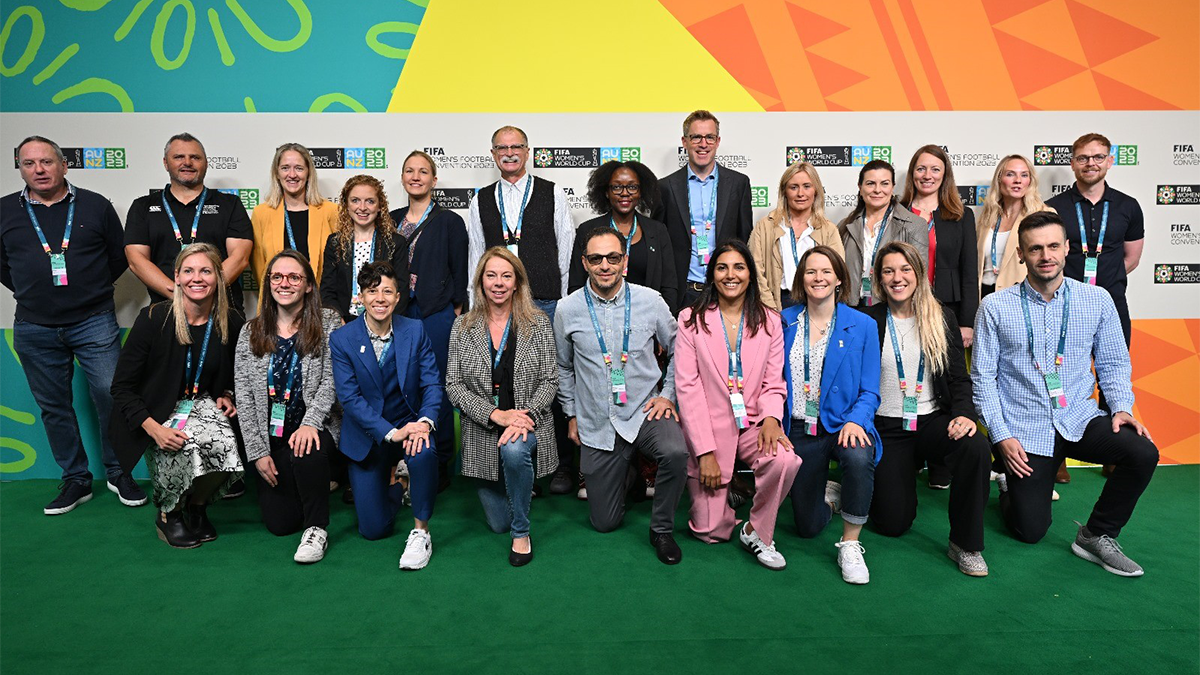EXSS faculty lead research on women athletes
Two of the three U.S. experts picked for 2023 FIFA Female Health Project in Australia came from Carolina.

Women’s sports are surging in America – from the explosion of the WNBA in recent years to the way the country rallies around the U.S. women’s soccer team for every World Cup.
Yet there’s a disconnect between the rise of women’s athletics and the lack of data about women’s health in sports.
Abbie Smith-Ryan, professor of exercise physiology in the College of Arts and Sciences’ exercise and sport science department, noticed this disparity early in her studies. Historically, research in the exercise science field has been viewed through a male lens.
“One element that I still find baffling is there’s very little data in our textbooks and our training around physiology of females,” Smith-Ryan said. “It’s a very small paragraph.”
That gap in understanding is something Smith-Ryan has worked to address, and she’s not alone. The EXSS department has taken a leading role in the study of female physiology in sports and exercise.
Case in point: Both Smith-Ryan and her EXSS colleague Anthony Hackney, professor of exercise physiology and nutrition, participated in the FIFA Female Health Project for the recent 2023 FIFA Women’s World Cup. The project included a global panel tasked with developing guidelines on how to improve women’s health in sports.
Only three of the 22 experts selected were from the United States, and Smith-Ryan and Hackney were the only two experts picked from the same university – invitations they received separately. The duo traveled to Australia during the tournament to represent both Carolina and the United States at the FIFA Convention.
Smith-Ryan said she felt a sense of “female empowerment” in Australia from the sheer energy surrounding the project. But the work is far from finished. A few weeks after she returned from Australia, Smith-Ryan spoke to Congress about the importance of investing in research on female athletes.
Hackney is also a leader in the field and has studied female athletes since 1979. Back then, Hackney said there was even more societal and scientific resistance to the work, with peers sometimes questioning why he would spend the time studying women. Hackney didn’t let that deter him.
“One of the famous quotes within the field is ‘Women are not small men,’” Hackney said. “Yes, there is tremendous similarity in our physiology, but there are actual differences in how physiological systems work, which revolve a lot around the reproductive physiology hormonal differences between men and women.
“And these have implications on how we might go about trying to create a training program that’s sex- specific, how we might think about nutrition for improvement of performance that is sex-specific and so on down the line.”
Smith-Ryan said the goal of the work is “to train women as women,” a concept that seems obvious but hasn’t always been applied. An important step in the process is to reduce the stigma around female health topics, like menstrual cycles, and instead provide education and data.
EXSS research isn’t exclusively related to sports. It’s about improving lifestyles.
“I always use this example to my students of, ‘Oh, she must be on her period,’” Smith-Ryan said, smiling. “Actually, you should own that and what’s actually happening, and let’s teach them to feel better and create less of a taboo environment.
“As a woman, there’s a lot of things that we experience and no one talks about. So it’s really saying: Here’s the science behind it, here’s the reality, and here’s how we help them feel better and perform better whether we’re at work or on the field.”







